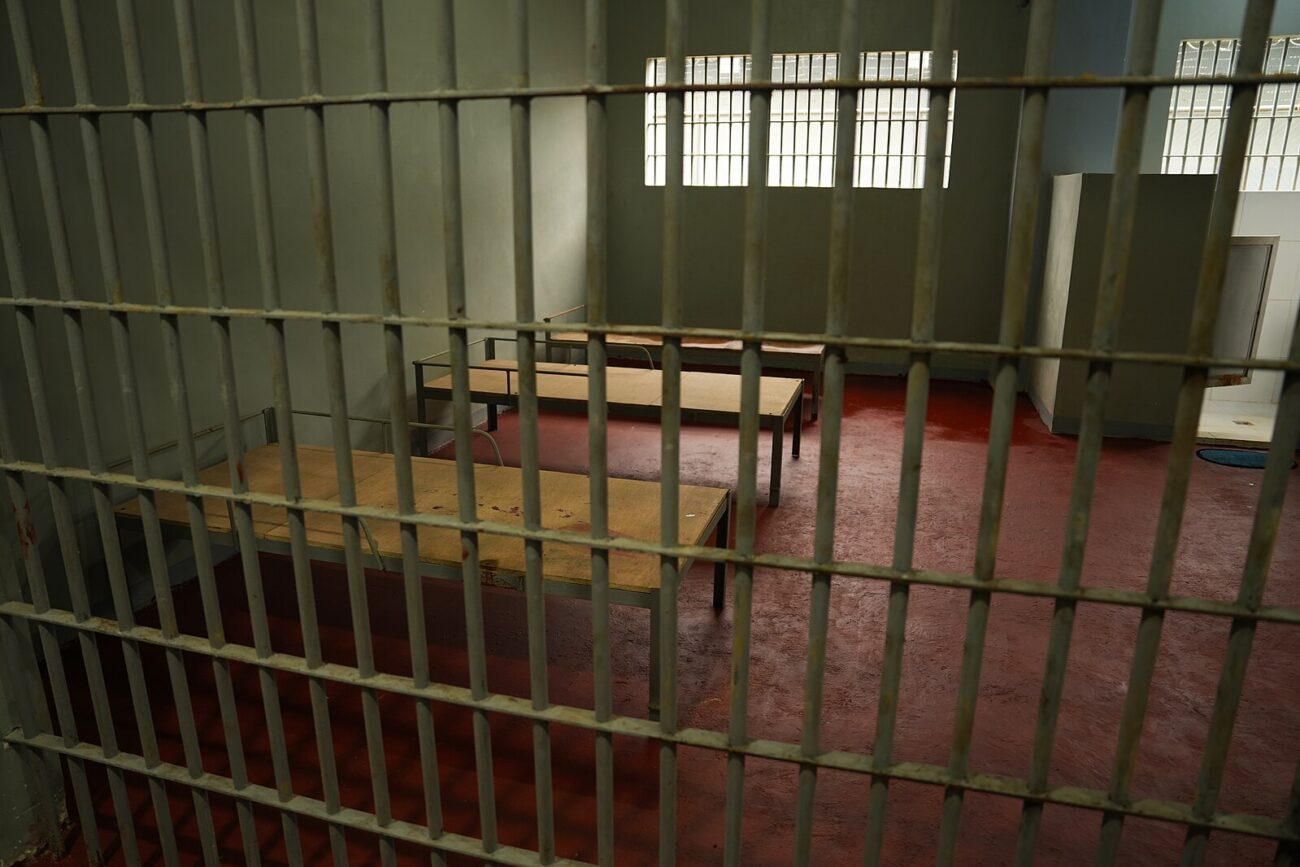HUMAN WRITES – Trump’s latest Supreme Court wins: What do they mean to you as a citizen or immigrant?
Photo by United Nations Office on Drugs and Crime, (Licensing: https://commons.wikimedia.org/wiki/File:Marawi_City_Jail,_the_Philippines_(53843381615).jpg)
By Ananya Roy, News Writer
Since January, President Trump has issued a wave of executive orders, while legal debates continue to unfold on all sides. As major Supreme Court rulings shape the legal landscape, many Americans are left wondering what it all means for them. We’ve compiled the latest Supreme Court rulings and explained what each one entailed and what those rulings mean for you.
We’re here to explain them to you simply.
Riley v. Bondi ( decided 6/26/2025)
The Supreme Court ruled that when someone is denied protection from deportation under the Convention Against Torture (CAT), that decision alone doesn’t start the clock for appealing their removal. The Court also clarified that courts can sometimes hear appeals filed late, depending on the situation.
-
-
- Pierre Riley, a Jamaican national with an aggravated felony conviction, was ordered removed after his 2021 release from prison. He sought protection under the Convention Against Torture (CAT), which was initially granted but later reversed by the Board of Immigration Appeals (BIA).
- Riley appealed the BIA’s denial of CAT relief. The Fourth Circuit dismissed his case for lack of jurisdiction, citing a prior ruling that a CAT denial does not count as a final order of removal triggering the 30-day appeal deadline.
- The Supreme Court ruled that the 30-day deadline in 8 U.S.C. § 1252(b)(1) is a mandatory claims-processing rule, not a jurisdictional bar, meaning courts can hear late-filed appeals under certain circumstances.
- The Court also held that a BIA denial of CAT relief does not trigger the 30-day filing deadline because it is not a “final order of removal” under immigration law.
- The majority emphasized that final removal orders are issued earlier, especially in expedited proceedings involving aggravated felons, and CAT rulings only determine whether someone can be removed to a specific country, not whether they can be removed at all.
- The ruling expands judicial review options for noncitizens facing deportation, while highlighting a split on whether due process requires deferral proceedings to be completed before removal orders are considered final.
-
What does this mean for you?
This decision gives noncitizens, especially those with serious criminal records, more time and legal pathways to challenge their deportation if they fear torture in their home countries. It reinforces that people must still get a fair shot at protection before being removed, which could lead to more cases being reviewed by federal courts. For the public, it underscores ongoing debates about immigration fairness, judicial access, and due process rights, even for those with past convictions.
Kennedy v. Braidwood Management, Inc. (decided 6/27/25)
The Supreme Court said the government can keep requiring insurance companies to cover preventive health services like HIV prevention, contraception, and vaccines. It ruled that the officials who make these recommendations were properly appointed and are supervised by the government.
-
-
- The case challenged the constitutional authority of the U.S. Preventive Services Task Force, which helps define which preventive services private insurers must cover under the Affordable Care Act (ACA), including services like HIV prevention (PrEP), contraception, and vaccines.
- A group of individuals and Christian-owned businesses argued that mandatory insurance coverage for these services violated their religious beliefs, and further claimed the Task Force’s structure violated the Appointments Clause of the Constitution by giving too much independent power to unelected officials.
- The Fifth Circuit had ruled in favor of the plaintiffs, saying Task Force members were improperly appointed and that their recommendations could not be enforced, potentially undermining preventive care mandates for millions.
- The Supreme Court reversed that ruling, holding 6–3 that Task Force members are inferior officers, appropriately appointed by the Secretary of Health and Human Services (HHS), who retains removal power and supervisory authority under longstanding statutory frameworks.
- The ruling upholds the federal government’s ability to require insurers to cover preventive services without cost-sharing, preserving a core component of the ACA and ensuring that recommendations from the Task Force remain enforceable.
- The decision prevents a sweeping rollback of preventive healthcare coverage while reaffirming executive branch control over regulatory appointments. However, the dissent warns that the Court’s interpretation stretches appointment authority and may leave open future challenges to agency independence.
-
What does this mean for you?
The Supreme Court’s ruling ensures that the federal government can continue requiring health insurers to cover preventive services, like HIV prevention (PrEP), contraception, cancer screenings, and vaccines, at no cost to patients. This protects a core part of the Affordable Care Act and preserves access to free preventive care for tens of millions of Americans. However, the Court did not decide whether employers or individuals with religious objections must still comply with these coverage rules. That part of the case may return to lower courts. While access to preventive care remains intact for now, future rulings could create exemptions that limit coverage based on religious beliefs, potentially reducing access for some employees depending on where they work.
Mahmoud V. Taylor (6/27/2)
The Supreme Court ruled that public schools cannot force parents to accept classroom instruction that conflicts with their religious beliefs, specifically LGBTQ+-inclusive storybooks, without offering an opt-out. The Court said this violated the parents’ religious freedom rights under the First Amendment.
-
-
- In 2022, a Maryland school district adopted LGBTQ+-inclusive storybooks for elementary students and initially allowed parents to opt out based on religious objections. In 2023, the district revoked all opt-out options, citing administrative challenges and equity concerns.
- Parents from Muslim, Catholic, and Orthodox Christian backgrounds challenged the policy, arguing it violated their First Amendment rights by forcing their children to participate in instruction that contradicted their religious beliefs without notice or choice.
- The Supreme Court ruled 6–3 that the school board’s no-opt-out policy burdens religious exercise and violates the Free Exercise Clause, entitling the parents to a preliminary injunction. The majority relied on Wisconsin v. Yoder, which prohibits government interference in parents’ efforts to guide their children’s religious development.
- The Court found that the books and associated instruction promote normative messages about gender identity and same-sex marriage, creating “pressure to conform” and an “objective danger” to religious freedom. It rejected the idea that neutral, generally applicable policies automatically pass constitutional muster in such contexts.
- The decision emphasized that even secular public education cannot be conditioned on surrendering core religious rights, and that administrative convenience is not a valid excuse for denying narrowly tailored accommodations, especially when opt-outs exist elsewhere in the curriculum.
- The ruling strengthens religious parents’ ability to challenge public school curricula, raising broader implications for how schools navigate diverse student populations, curriculum design, and constitutional rights, while the dissent warned of potential chaos and curricular fragmentation in public education.
-
What does this mean for you?
This decision gives religious parents more power to challenge school curricula that conflict with their faith, even in public, secular classrooms. Schools must now consider religious exemptions when teaching topics like gender identity or same-sex marriage, even if the content is part of a broader equity effort. While it protects religious liberty, critics warn it could lead to fragmented education policies and complicate how schools serve diverse student populations.
Goldey V. Fields (6/30/35)
The Supreme Court ruled that a federal inmate cannot sue prison officials for using excessive force under Bivens, a legal doctrine that sometimes allows people to seek damages for constitutional violations by federal officers. The Court said this kind of claim is a “new context” and should not be allowed without specific authorization from Congress.
-
-
- Federal inmate Andrew Fields sued prison officials under Bivens v. Six Unknown Named Agents for allegedly using excessive force while he was in solitary confinement, claiming a violation of his Eighth Amendment rights. The Fourth Circuit allowed the case to proceed, despite Bivens not having previously been applied to this context.
- Bivens allows for implied damages claims against federal officers for certain constitutional violations, but the Supreme Court has repeatedly declined to extend it to new contexts since the 1980s, emphasizing that Congress, not the courts, should create such remedies.
- In a per curiam opinion, the Court unanimously reversed the Fourth Circuit, holding that Eighth Amendment excessive force claims against federal prison officials present a “new Bivens context” and that no damages remedy should be implied.
- The Court emphasized that Congress has legislated extensively in the area of prisoner rights without creating a cause of action for such claims, and that alternative remedial structures already exist, such as administrative grievance procedures and habeas corpus.
- The ruling reinforces the Court’s strict stance that judicially created remedies under Bivens are disfavored, especially when dealing with prison administration, which the Court views as requiring deference to the executive and legislative branches.
- Implication: The decision sharply limits federal inmates’ ability to seek monetary damages for abuse by federal officials, shifting responsibility to Congress and administrative systems, and signaling that courts will no longer expand Bivens to cover new constitutional claims.
-
What does this mean for you?
This decision makes it much harder for federal inmates to get money damages for mistreatment or abuse by prison staff. It reinforces that courts will no longer expand Bivens to cover new types of constitutional claims and that it’s up to Congress, not the courts, to create those rights. For the public, it highlights how limited the legal options are when federal officials, especially in prisons, violate constitutional rights.





